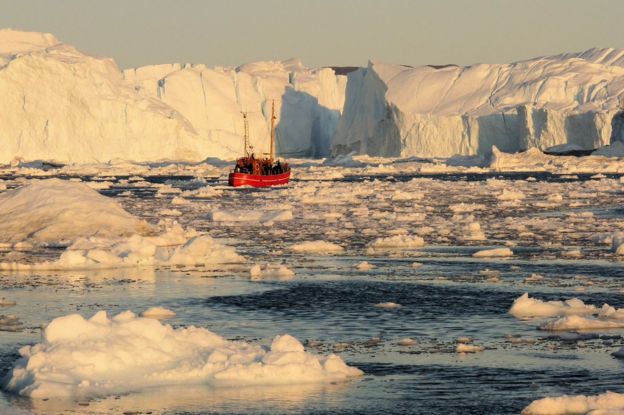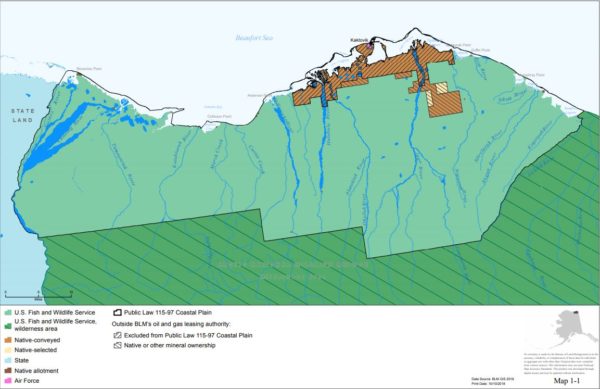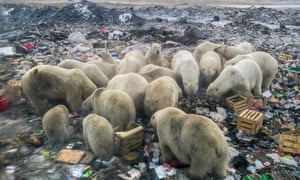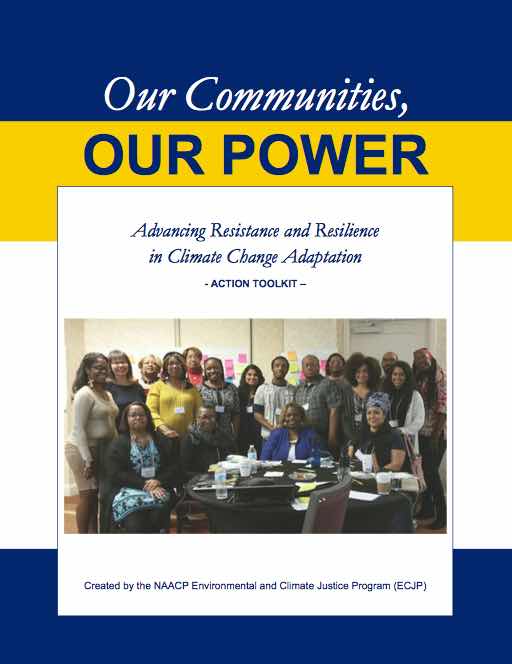Cartoons and imaginative use of video, art, and graphics help get their message across.
This month’s “This is Not Cool” original video, produced by independent videographer and YCC regular contributor Peter Sinclair, explores the creative science communication initiatives of four different scientists.
Four scientists make creativity a key to communicating their research » Yale Climate Connections
Following what goes on with oil and gas exploitation in and around Adrian, Michigan since 2013 - and how these events in our little city connect to the global environmental situation... - with the occasional sidetrack to other related environmental issues in Lenawee county, Michigan and how those relate to global issues.
Saturday, May 25, 2019
Friday, May 24, 2019
Wind energy: turbines are getting taller, bigger, and more powerful - Vox
The declining price of solar power gets more press, but there are big things happening in wind technology too. And I mean big.
The math on wind turbines is pretty simple: Bigger is better. Specifically, there are two ways to produce more power from the wind in a given area.
The first is with bigger rotors and blades to cover a wider area. That increases the capacity of the turbine, i.e., its total potential production.
The second is to get the blades up higher into the atmosphere, where the wind blows more steadily. That increases the turbine’s “capacity factor,” i.e., the amount of power it actually produces relative to its total potential (or more colloquially: how often it runs).
/cdn.vox-cdn.com/uploads/chorus_image/image/58951195/GE_RE_Offshore_Haliade_X_SOCIAL_02262018a.00_01_05_00.Still003.0.jpg)
The GE Haliade-X, a big-ass wind turbine. GE
Wind energy: turbines are getting taller, bigger, and more powerful - Vox
The math on wind turbines is pretty simple: Bigger is better. Specifically, there are two ways to produce more power from the wind in a given area.
The first is with bigger rotors and blades to cover a wider area. That increases the capacity of the turbine, i.e., its total potential production.
The second is to get the blades up higher into the atmosphere, where the wind blows more steadily. That increases the turbine’s “capacity factor,” i.e., the amount of power it actually produces relative to its total potential (or more colloquially: how often it runs).
/cdn.vox-cdn.com/uploads/chorus_image/image/58951195/GE_RE_Offshore_Haliade_X_SOCIAL_02262018a.00_01_05_00.Still003.0.jpg)
The GE Haliade-X, a big-ass wind turbine. GE
Wind energy: turbines are getting taller, bigger, and more powerful - Vox
E.P.A. Plans to Get Thousands of Pollution Deaths Off the Books by Changing Its Math - The New York Times
WASHINGTON — The Environmental Protection Agency plans to change the way it calculates the health risks of air pollution, a shift that would make it easier to roll back a key climate change rule because it would result in far fewer predicted deaths from pollution, according to five people with knowledge of the agency’s plans.

The Hunter power plant in Castle Dale, Utah, which burns an estimated 4.5 million tons of coal a year.CreditCreditBrandon Thibodeaux for The New York Times
The E.P.A. had originally forecast that eliminating the Obama-era rule, the Clean Power Plan, and replacing it with a new measure would have resulted in an additional 1,400 premature deaths per year. The new analytical model would significantly reduce that number and would most likely be used by the Trump administration to defend further rollbacks of air pollution rules if it is formally adopted.
E.P.A. Plans to Get Thousands of Pollution Deaths Off the Books by Changing Its Math - The New York Times

The Hunter power plant in Castle Dale, Utah, which burns an estimated 4.5 million tons of coal a year.CreditCreditBrandon Thibodeaux for The New York Times
The E.P.A. had originally forecast that eliminating the Obama-era rule, the Clean Power Plan, and replacing it with a new measure would have resulted in an additional 1,400 premature deaths per year. The new analytical model would significantly reduce that number and would most likely be used by the Trump administration to defend further rollbacks of air pollution rules if it is formally adopted.
E.P.A. Plans to Get Thousands of Pollution Deaths Off the Books by Changing Its Math - The New York Times
Climate change: Global sea level rise could be bigger than expected - BBC News
Scientists believe that global sea levels could rise far more than predicted, due to accelerating melting in Greenland and Antarctica. The long-held view has been that the world's seas would rise by a maximum of just under a metre by 2100. This new study, based on expert opinions, projects that the real level may be around double that figure. This could lead to the displacement of hundreds of millions of people, the authors say.

JONATHAN BAMBER: A small boat in the Illulissat Icefjord in western Greenland, dwarfed by icebergs that have calved from Greenland's largest glacier, Jacobshavn Isbrae
Antarctic instability 'is spreading'
Thousands of penguin chicks wiped out
Warning from 'Antarctica's last forests'
Climate change: Global sea level rise could be bigger than expected - BBC News

JONATHAN BAMBER: A small boat in the Illulissat Icefjord in western Greenland, dwarfed by icebergs that have calved from Greenland's largest glacier, Jacobshavn Isbrae
Antarctic instability 'is spreading'
Thousands of penguin chicks wiped out
Warning from 'Antarctica's last forests'
Climate change: Global sea level rise could be bigger than expected - BBC News
BP backs Trump’s Arctic oil drilling plans despite climate risk - Unearthed
Oil major BP played a key role in lobbying the Trump administration to allow oil and gas drilling in two previously protected areas of the Alaskan Arctic, Unearthed can reveal.
Opening up the areas to exploration poses significant risks to the environment and will undermine efforts to meet the Paris climate targets to prevent catastrophic climate change.

Map showing the Beaufort Sea and the Trump administration's proposed leasing areas within the Arctic Refuge. Credit: Bureau of Land Management
Writing to Trump administration officials, the company first lobbied for more areas to be opened up to drilling off the US coast and then welcomed plans to lease swathes of the Arctic’s Beaufort Sea for oil and gas exploration, according to documents seen by Unearthed.
BP backs Trump’s Arctic oil drilling plans despite climate risk - Unearthed
Opening up the areas to exploration poses significant risks to the environment and will undermine efforts to meet the Paris climate targets to prevent catastrophic climate change.

Map showing the Beaufort Sea and the Trump administration's proposed leasing areas within the Arctic Refuge. Credit: Bureau of Land Management
Writing to Trump administration officials, the company first lobbied for more areas to be opened up to drilling off the US coast and then welcomed plans to lease swathes of the Arctic’s Beaufort Sea for oil and gas exploration, according to documents seen by Unearthed.
BP backs Trump’s Arctic oil drilling plans despite climate risk - Unearthed
Sunday, May 19, 2019
Why the Guardian is changing the language it uses about the environment | Environment | The Guardian
The Guardian has updated its style guide to introduce terms that more accurately describe the environmental crises facing the world.
Instead of “climate change” the preferred terms are “climate emergency, crisis or breakdown” and “global heating” is favoured over “global warming”, although the original terms are not banned.
“We want to ensure that we are being scientifically precise, while also communicating clearly with readers on this very important issue,” said the editor-in-chief, Katharine Viner. “The phrase ‘climate change’, for example, sounds rather passive and gentle when what scientists are talking about is a catastrophe for humanity.”
“Increasingly, climate scientists and organisations from the UN to the Met Office are changing their terminology, and using stronger language to describe the situation we’re in,” she said.

The destruction of Arctic ecosystems forces animals to search for food on land, such as these polar bears in northern Russia. Photograph: Alexander Grir/AFP/Getty Images
Continue reading at: Why the Guardian is changing the language it uses about the environment | Environment | The Guardian
Instead of “climate change” the preferred terms are “climate emergency, crisis or breakdown” and “global heating” is favoured over “global warming”, although the original terms are not banned.
“We want to ensure that we are being scientifically precise, while also communicating clearly with readers on this very important issue,” said the editor-in-chief, Katharine Viner. “The phrase ‘climate change’, for example, sounds rather passive and gentle when what scientists are talking about is a catastrophe for humanity.”
“Increasingly, climate scientists and organisations from the UN to the Met Office are changing their terminology, and using stronger language to describe the situation we’re in,” she said.

The destruction of Arctic ecosystems forces animals to search for food on land, such as these polar bears in northern Russia. Photograph: Alexander Grir/AFP/Getty Images
Continue reading at: Why the Guardian is changing the language it uses about the environment | Environment | The Guardian
Our Communities, Our Power: Advancing Resistance and Resilience in Climate Change Adaptation Toolkit | CAKE: Climate Adaptation Knowledge Exchange
The Beloved Community is a vision for our future where all people share equally in the wealth and bounty of the earth, where we protect its abundance, diversity and beauty for future generations. In this vision of liberation, racism, exploitation, and domination are replaced by democracy, cooperation, interdependence, and love. To get there, we pursue transformative, systems-change solutions. What do we mean by this? The root causes of the problems our communities face—like climate change, racism, and economic inequality—are all deeply connected. Since the problems are connected, so are the solutions.

Our Communities, Our Power: Advancing Resistance and Resilience in Climate Change Adaptation Toolkit | CAKE: Climate Adaptation Knowledge Exchange
Our Communities, Our Power: Advancing Resistance and Resilience in Climate Change Adaptation Toolkit | CAKE: Climate Adaptation Knowledge Exchange
Subscribe to:
Posts (Atom)
